Book publishing is weird.
When I started in the industry, my only goal was to see how the sausages were made in order to try to make my own sausage a little bit easier. Seven years later, I have learned a lot about the science behind successfully publishing a book. Things like how BISAC and shelving codes differ from each other, or what justifies a good comp title. Yet I still haven’t finished my own sausage. Part of this is because all of the information is overwhelming enough that I’m unable to rip off my marketing hat and just write. I become so worried about what will happen to the book after it’s published that I can’t finish it in the first place.
The one good thing about having this knowledge, though, is feeling more prepared for what to expect once I get something into the hands of a publisher. Like the importance of connecting with indie booksellers or how traditional review coverage is taking increasingly longer with the fall of media outlets. I also understand that after publication, my promotions team will probably only focus on my book for three months or so because their workloads are just too stacked thanks to an oversaturated marketplace. Most authors don’t know these kinds of things because it wouldn’t behoove publishing houses to disclose it. This leads to a lot of disappointment and heartache, especially when it comes to debut writers who can feel like they’re failing.
Ella Dawson is someone unafraid to call out the industry's problems, this being but one of them she’s written on and spoken about. Actually, she’s unafraid to call out problems across all different facets of society. It’s part of what makes her a really cool person and a wonderful writer.
After years as a sex and culture critic, Ella’s debut novel But How Are You, Really released last summer. The book introduces readers to Charlotte: a burned out, disillusioned twenty-something bisexual working a terrible job in New York. She isn’t sure how life is going so wrong, but her five-year college reunion might help her figure it out. The weekend will also bring up some toxic people from her past, plus reignite feelings for her ex, Reece, who’s had a huge emotional glow-up since they last shared a bed. It’s the perfect story for anyone feeling a little lost but hopeful enough to be found, and who misses their friends.
I spoke with Ella about her latest projects, including her fantastic podcast Rebel Ever After. What follows is a thoughtful conversation about artistic validation, being unafraid to try new things, and my favorite romance hero trope.
What is something you do for yourself that is completely unrelated to your writing?
Books have come to dominate so much of my life. Almost all of my close friends are authors and creatives. Most of my social life revolves around going to book events and book clubs. It’s wild how much I don’t have a life outside of books. One of my goals for this year (and for my own sanity) is to dedicate more time to things that are not book related.
One hobby that I've always been interested in is photography. It was intimidating to me for a while because I felt it had a very masculine, deliberate type of energy and I am an impulsive, lazy person. I never thought photography was something I could randomly pick up. A few years ago, I bought some disposable cameras and threw them in my purse or in suitcases while traveling. I recently got those photos developed and it brought me so much joy, to realize I didn’t remember taking most of them. It made me think about the delayed gratification of photography. It was also the first time I was doing something creative that I had no intention to monetize or share.
So I bought a cheap camera, a half-frame Kodak, which means that you get two shots per frame. I just received the first set back from the photo lab. I definitely messed up. There’s a lot of light bleeding. But they’re really cool.
Are there certain kinds of things you photograph? What’s your vibe?
I’ve been walking around taking photos of all the flowering trees in my neighborhood, experimenting with how to frame shots, or how to contrast warehouses with natural spring flowers. When I’m trying to recharge from work and be offline, photography is a way for me to just go for a walk, have quiet time, and not really talk to anybody.
My dad lives in this very small town, Main Street USA suburb in Long Island. I visited him over Easter and it was fun taking photos of buildings I have seen for so many years but that have all these strange details I’ve never noticed. I’ve never considered myself a person with any visual instincts or any visual language, but it’s nice to go take photos of things and then look at them.
What drew you into film photography versus digital photography?
I take millions of photos on my phone and I’ve had a digital camera since college. It’s fun to take photographs and then go home and look at them on my screen, but the patience of film photography is interesting to me, the fact I might not know how it turned out for a few weeks, or in the case of those disposable cameras it took me years. I don’t get that immediate gratification. I also appreciate each shot more. I’m not taking fifty selfies to get the most flattering angle. I’m taking one or two photos of a beautiful, flowering tree, and who knows if they’ll turn out? There’s something magical about that. It’s forcing me to be less precious and to feel like I have a little less control.
Do you think writing is an art form with immediate gratification? I interviewed the writer Danielle Chelosky last year and she classified it in that way to me, which I’ve always found interesting.
Yeah, I completely agree. With writing, you can see right away on your page if you’ve written something that’s a banger, and you can text it to your friends and say, “Look at how great I am.” Part of it for me, too, is that for most of my career, I’ve written for the internet. I can work on a blog post or an essay and put it up on Patreon the next day and immediately hear from people what they think. I get those serotonin and dopamine hits and have that validation right away.
In some ways that’s incredible. It’s helped me build a relationship with my readers. But it also has made me an impatient person and sometimes I don’t do all the revision and editing I could. I think it’s part of why writing a book was really painful. Wonderful, but painful. It took five years to have it out in the world and I was working in isolation. In some ways that was amazing for me as an artist, but I’ve also had such a crash afterward. Like, “Was it worth it for this validation that didn’t last very long?”
No one tells authors about the mad dash to the finish line and then the crash that comes about 12 weeks afterwards when the buzz dies down.
It’s something we feel a lot of shame around as authors, in the sense that there are real problems in the world and you should just be grateful. I completely understand the silence. It’s not a big tragedy, but it is part of the lifecycle of a writer that is really difficult. I’ve candidly talked to my agent and to other folks about not being sure if I ever want to do this again because it’s not the creative process that I think works best for my mental health. I don’t know what that means for my career, but I’ve always bucked at cones of silence even if it makes me look unprofessional. And it can be really hard to remember you have a life outside of your books when you’re an author navigating these incredibly intense emotions.
You also said photography felt like less pressure than writing. Do you feel the need to be good at it?
I’m trying to be so intentional with not letting this be something I feel like I need to master. There are skills I want to develop: operating the camera, handling certain lighting. But I have no interest in ever doing this professionally. I don’t know if I will even share much online. I want this to be something I do because it’s fun and because it gets me off my screen.
When I got my photos back from this first roll, it was really nice not thinking about what I was going to highlight on Instagram. Instead I just pulled some that I really love and sent them to my friend. I’ve broken my brain too much with artistic perfectionism, and I’m determined to enjoy failing at something. I’ve missed that kind of creativity. With photography, the more I fuck up, the more there are these unexpected results. I get to follow some instincts and be an amateur who doesn’t know what she’s doing for a while. It’s very exciting to be shitty at something, and it’s nobody’s business but mine.
Let’s talk about something you’re definitely not shitty at: your podcast, Rebel Ever After. It’s been one of the best things to enter my orbit since Trump got elected. I’ve found it so hard to come out of all the anger, depression, and grief. I don’t know that I have, honestly…
Yeah, me neither.
But Rebel Ever After allows me to indulge in something that feels good and positive, nourishing. What made you want to start the podcast?
When my debut novel came out, my favorite part of the process wound up being meeting other authors and talking to them about their work; sharing horror stories as well as lessons about what it’s like to write books in a genre with very specific rules and expectations, especially when you’re challenging those expectations. I’d been looking for that sense of community and finding it among writers was really meaningful. I wanted to create a space for these conversations to keep happening.
After the election, I was such a wreck. It also felt really difficult to justify spending so many hours of my life reading and writing romance novels when the stakes were so high on a daily basis for survival. I was also so furious by people who said, “Books are just a form of escapism! Keep politics out of your books! I can vote for Trump and still read your queer romances!”
The podcast became something to channel that sense of helplessness and rage into. I tried to just take all the anger and say, “Fuck it! We’re going to talk about how romance can be part of the solution. We’re also going to talk about how romance has sometimes been part of the problem. And we’re going to find a way to support and elevate books that are doing something different.” Almost immediately, it became a political project, which made sense since romance has always been a political genre. It’s given me the purpose that I’ve needed since the election.
What about podcasting have you enjoyed that’s different from other forms of storytelling and interviewing? Does it have an impact on your writing?
I’ve always been an introverted person. Having deep intimate conversations with strangers has terrified me my entire life. But I actually love talking to a stranger when I know them through their writing. I also studied pop culture criticism and did a lot of that work in my twenties, so it’s been such a joy to go back to those skills. I get to nerd out on book analysis, then bring those questions to the author.
It’s also a whole new set of skills to develop. I had a microphone that I had stolen from an ex-boyfriend many years ago. But I’ve really been teaching myself as I go: how to record, how to edit, how to conduct an interview that’s interesting to people who haven’t read the authors’ books. It’s been so gratifying to hear that people enjoy it and to see the numbers continue to grow. But it is also personally fulfilling to learn new stuff, make mistakes, and feel capable. I really struggled with a sense of failure when my book didn’t break out of the pack, and working on the podcast has helped me realize I can still develop new things, pulling from what I love about my life as a writer and bringing that to conversations with authors.
I’ve had pretty bad writer’s block lately, but the podcast has given me an opportunity to peek into all these different types of brains: how they communicate, how their personalities impact the way they approach their art, the different challenges they’ve had as writers. It’s gotten me thinking about if I do write another romance novel, how do I want to plot my book differently? How do I want to approach it differently?
Tell readers a little bit about But How Are You, Really.
In my twenties, I went to my five-year college reunion and it was an eye-opening, messy, somewhat drunk four-day life-changing experience. It made me realize I hated my job. I hated my boyfriend. I missed all of my friends. And I still had feelings for an ex. It was… chaotic. Then six months later, the world went into lockdown during Covid.
I had quit my job at this point, but I hadn’t made all the big life changes. So I took those feelings and decided to write a book about a girl who hates her job and her life, who goes to her five-year college reunion and has this reckoning of, “Am I living up to my values as I understood them as an undergrad? Have I lost touch with my friends? Have I healed? Have I progressed? What are the things that are holding me back, namely capitalism?” I also wanted to write a big, swoony, sexy romance where the one that got away has gone to therapy and grown up a lot, so maybe the timing is right now.
I love it so much. It’s my baby. It had kind of a weird launch. I learned a lot about book positioning and genre division. I wrote thinking of it as a hybrid between literary fiction and romance, and that’s not how books are sold or how readers understand them. There are clear distinctions, even in terms of shelving. I think of it as a romance. I set out to write a romance. But it’s not in the romance section of stores, which is a bummer.
If you are a jaded Millennial, if you are realizing you hate your job, if you feel like you’re still recovering from formative relationships that were really painful and traumatic: this is the book for you. For the sad girls who have a lot of rage and don’t know how to ask for help, and would also love to date a man who isn’t an asshole; just a sweet cinnamon roll who wants to be there for you as you heal and recover but will also not make himself into this shining white knight for loving you.
Got to say, I love me a cinnamon roll.
I think the thing about cinnamon rolls is they get a bad reputation because sometimes they seem like one dimensional, too perfect to be true men. Reece is so ready to be a good partner because he’s worked on himself, but he also lives with his mom and his career doesn’t really exist. He’s spent a few years getting sober. He thinks of himself as being such a loser, but he’s just a work in progress, as is Charlotte. I really set out to write a hero who looks like he has nothing to offer but really has everything to offer emotionally. He’s a cinnamon roll like you might get at an Auntie Annie’s at Penn Station.
Ella Dawson is an NYC-based sex and culture critic and the author of But How Are You, Really, a novel about college reunions and millennial angst. She is also the host of the Rebel Ever After podcast about progressive romance novels. She was once internet famous for having herpes, but that’s a whole other story. Ella is proudly bisexual, anxious, and aspires to adopt a kitten. Follow her on social media as @brosandprose.
Rachel’s Weekly Recs:
My friend Nadine (of The Doorway) told me about Postcrossing, an international postcard program where you can send and receive mail from around the world. Her fiancé participates and has gotten lots of cool goodies.
I just started Katie Ye’s debut novel Maggie: or, A Man and a Woman Walk Into a Bar, set to release this summer. It’s a tragicomedy about motherhood, friendship, love, and how we handle the worst of times. Absolutely brilliant.
I’m rewatching Sex Education, the show about horny British teenagers who are living in a modern day version of a John Hughes movie. For all its raunch, it also gets a lot right about subjects like abortion, vaginismus, and generally young love.





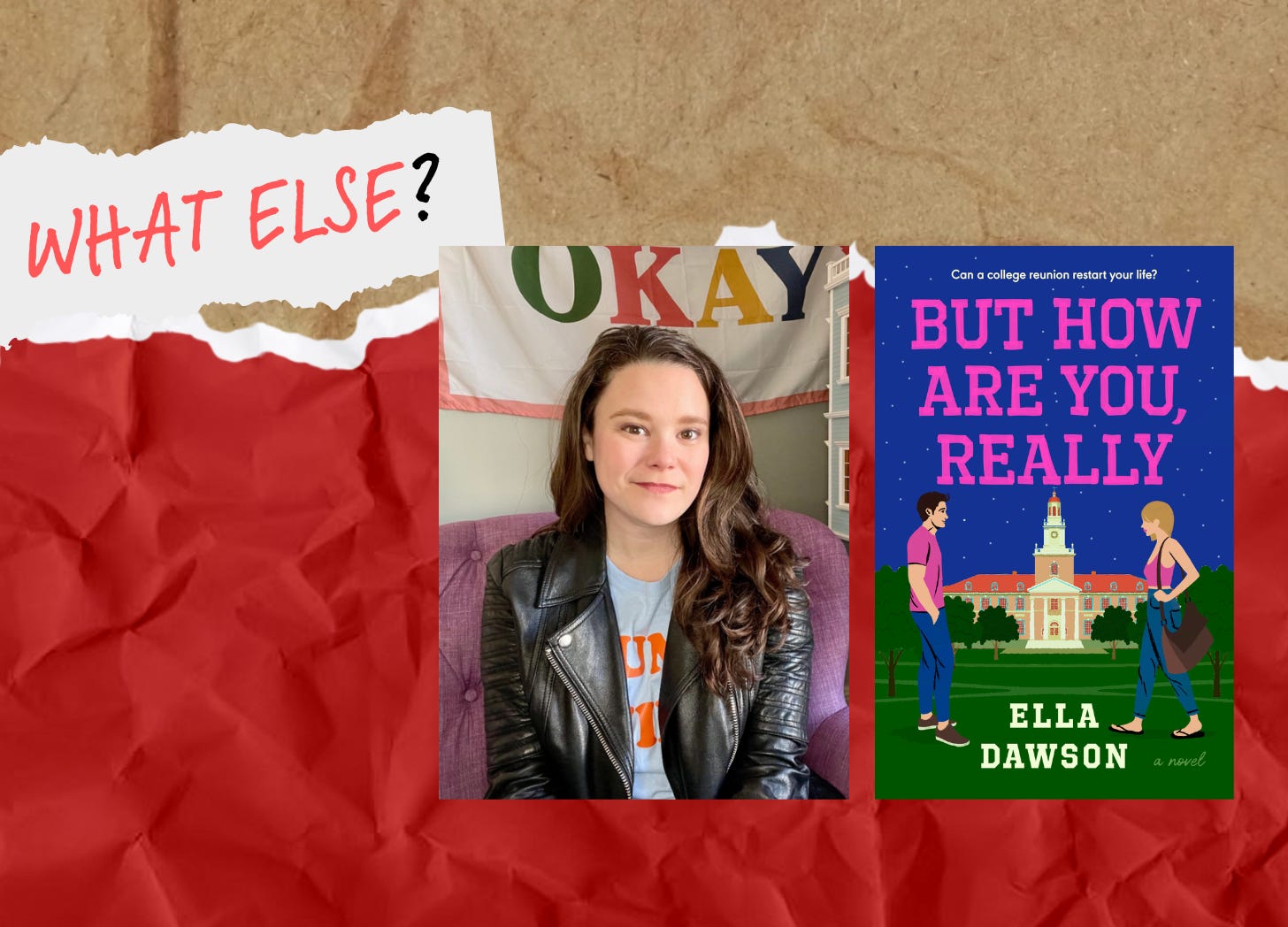
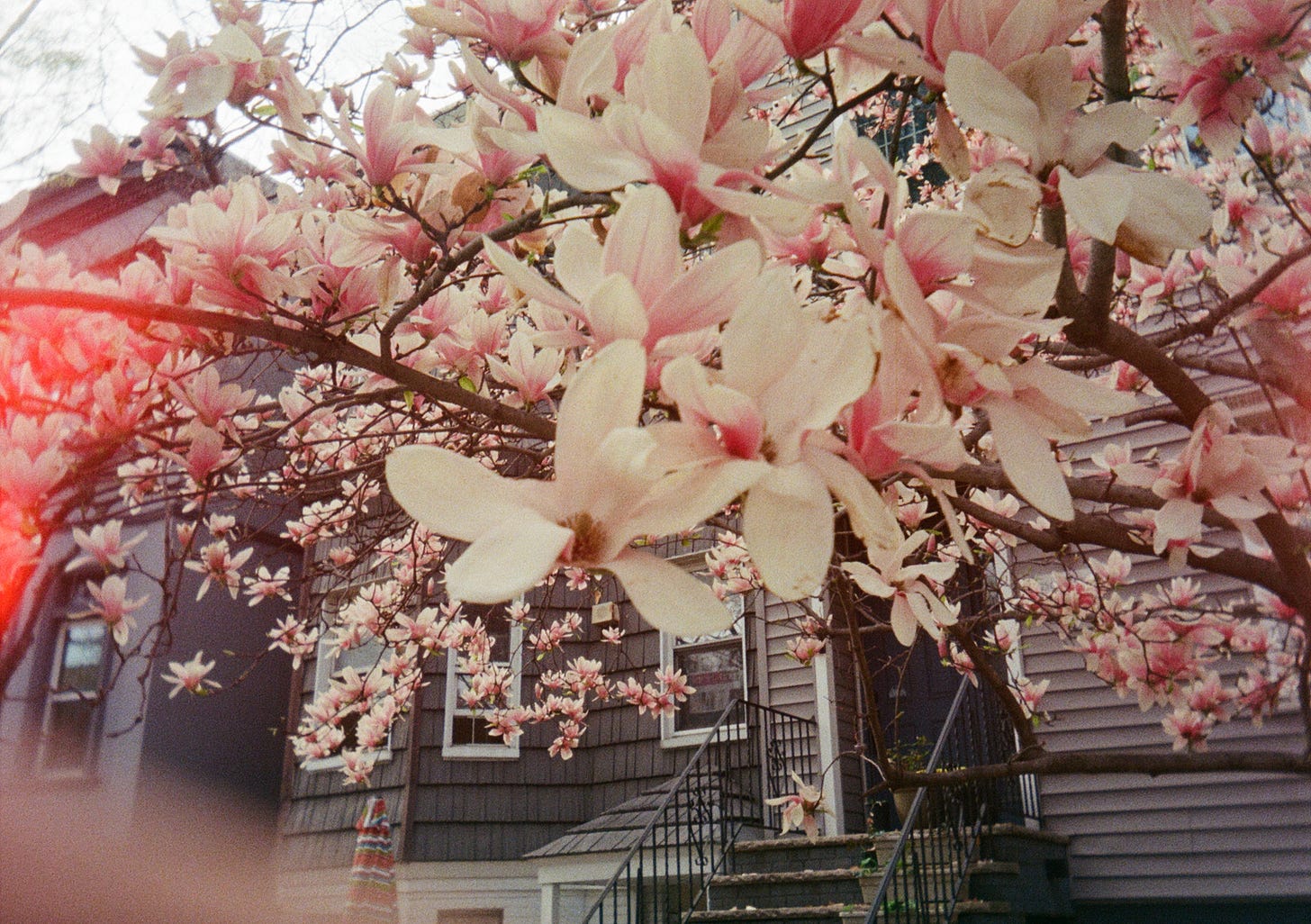
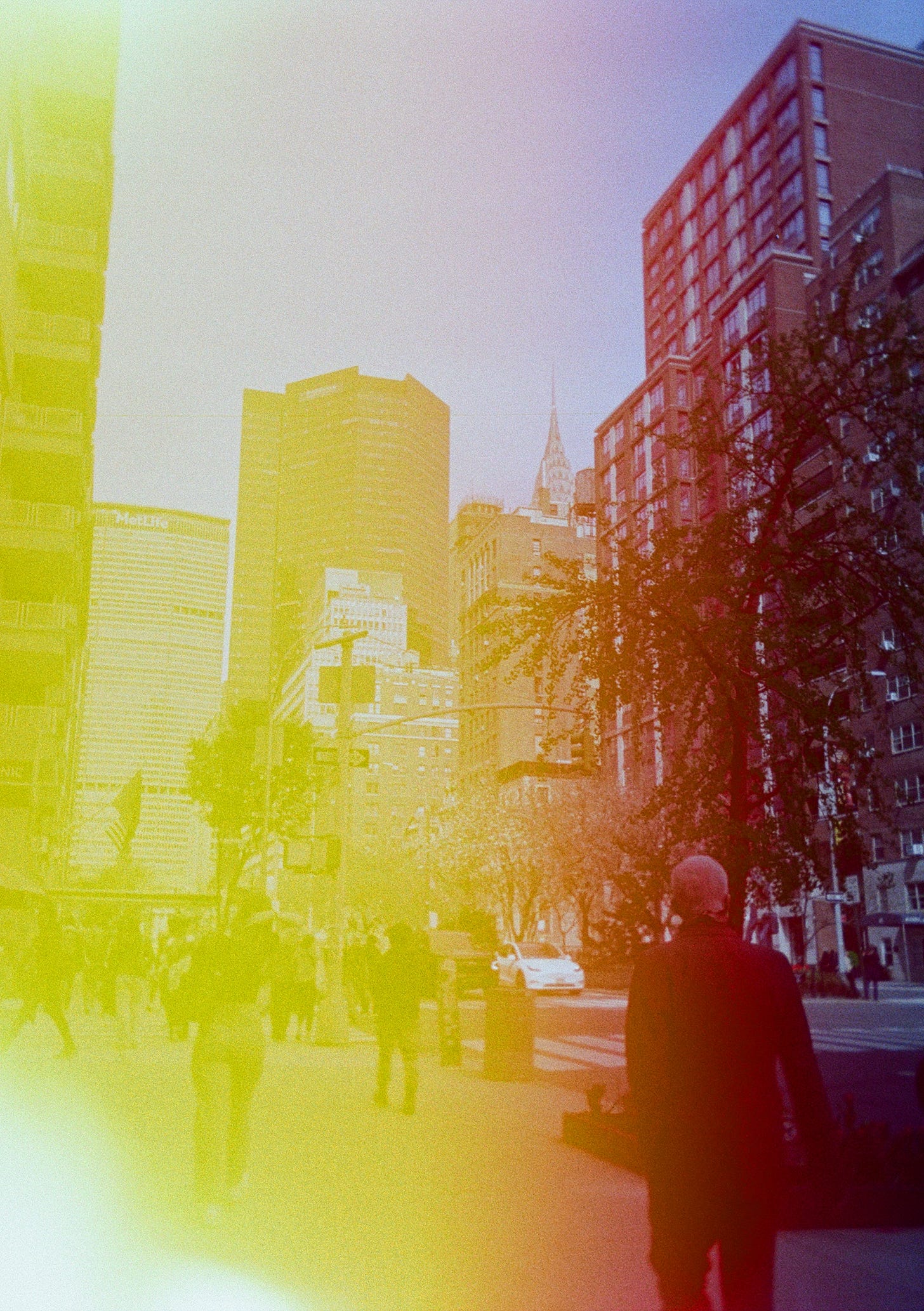
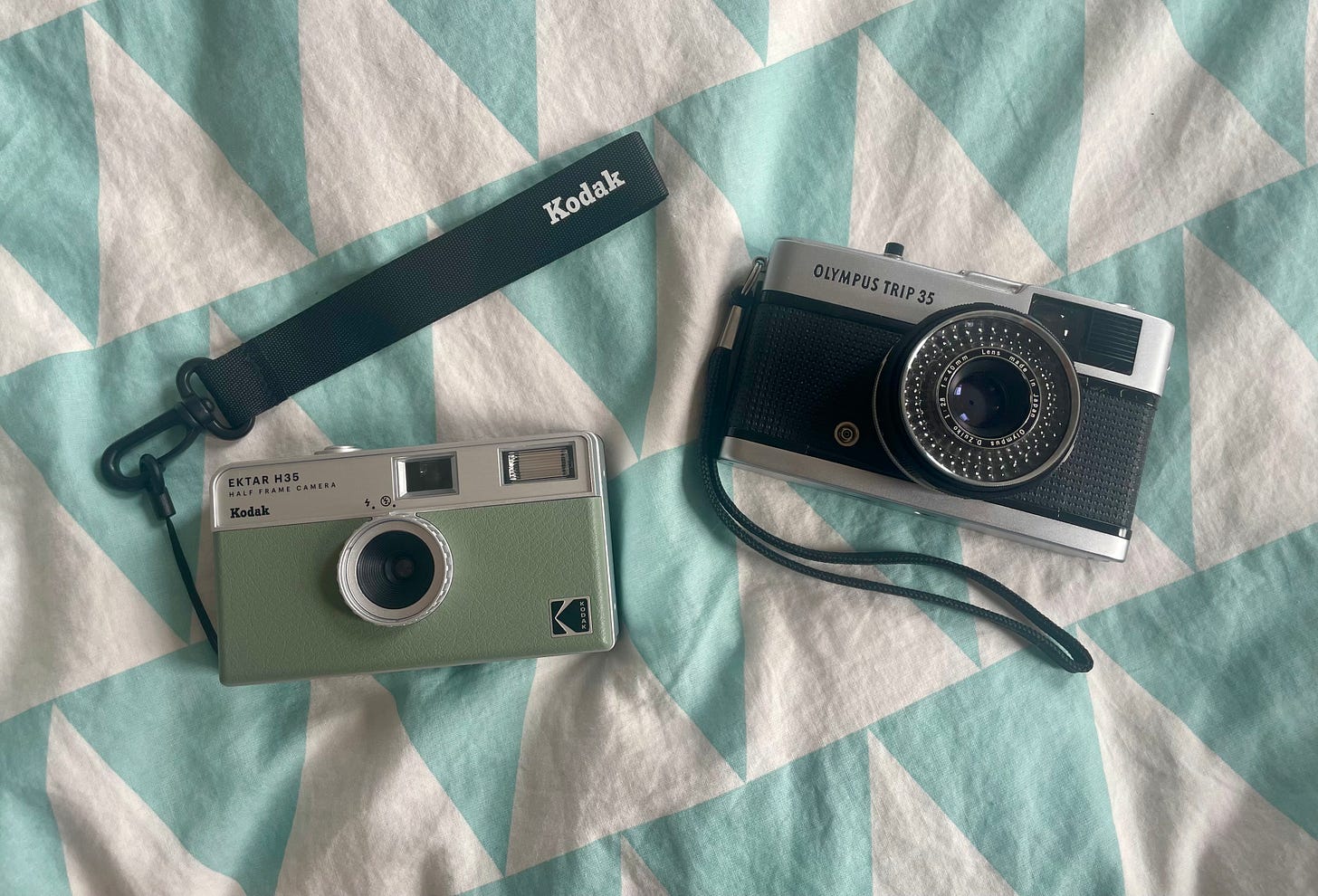

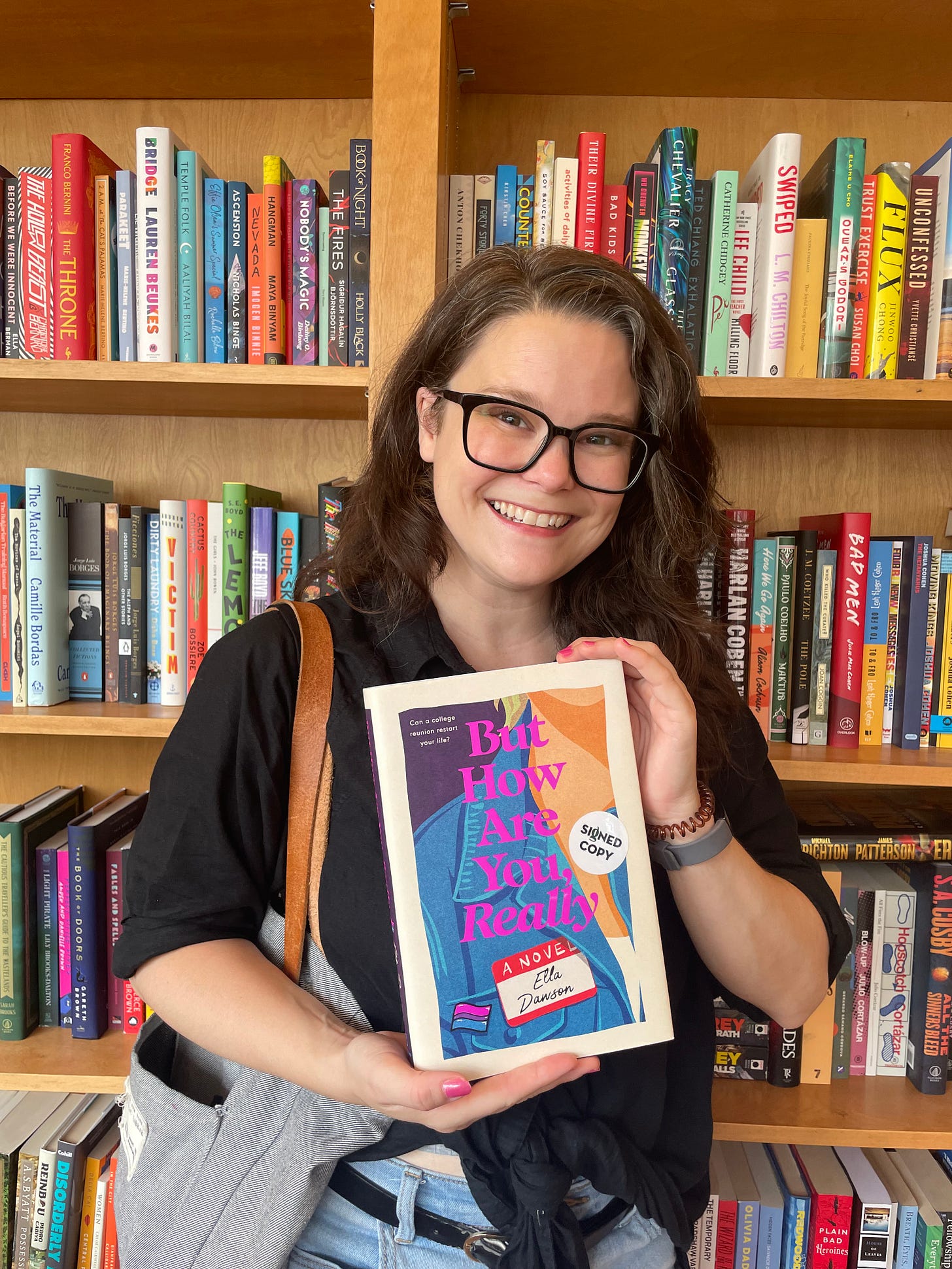
SO interesting!!! Was a delight to read. Keep the conversations coming.